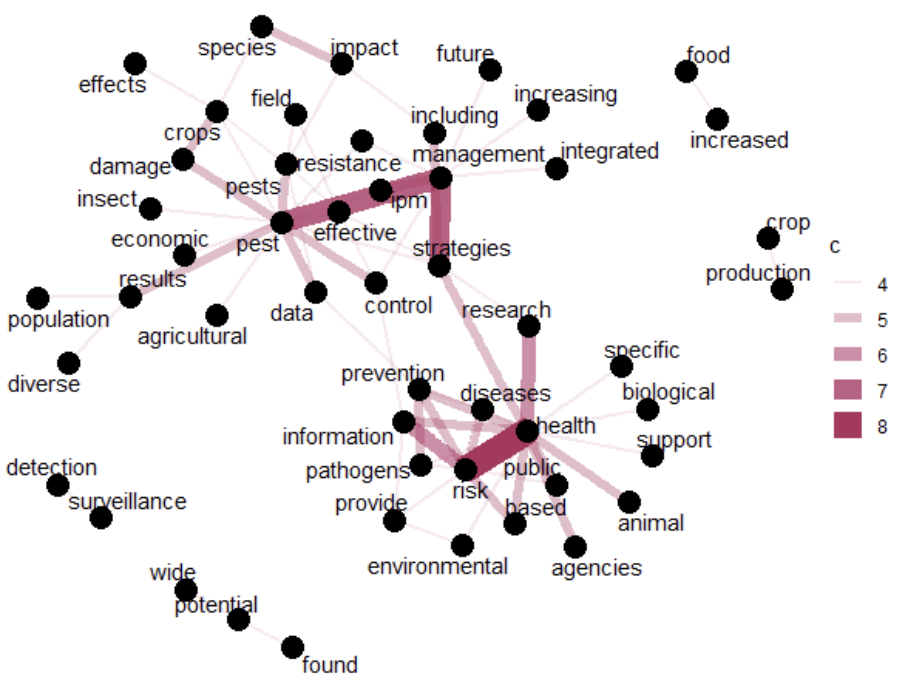Check out our feature in AgriLife Today regarding this project.
Protecting food security, preventing biosecurity threats, and ensuring a stable food supply is crucial for promoting economic stability, international trade, and national security. A great amount of research addresses critical food and agricultural defense/security issues, which is of interest to both the private and government sectors. Unfortunately, the breadth of the issues, and fluctuations in topical interest and funding levels, all contribute to an incomplete mapping of the body of work in these areas.
To address these challenges, CBTS kicked off a project in collaboration with the U.S. Agricultural Security team at Texas A&M AgriLife Agricultural Leadership Education and Communications. The aim is to adopt a systematic approach to analyzing threats to agricultural security.
Research and conference components
This two-year project comprises both research and conference components. The research will synthesize existing knowledge through systematic mapping. The goal is to identify knowledge gaps in understanding agricultural security threats, with a focus on those impacting food and agricultural security. As an example, the team will employ machine learning techniques to identify search keywords. They will develop co-occurrence maps to connect keywords and gain insights into current trends and dynamics.

The primary purpose of the conferences is to review the information gathered, including research findings and best practices. Additionally, these meetings will help to prioritize research areas and promote collaboration to develop a holistic perspective on food and agricultural defense and security. The first stakeholder meeting will be held in Washington D.C. on January 18, 2024.
The outputs of this work will include conceptual models, methodological frameworks, research and conference papers, and a systematic mapping database. The team will use these tools to disseminate knowledge and offer valuable recommendations and insights. This will guide stakeholders in enhancing food and agricultural security, including identifying needed research avenues and effective strategies and policies for implementation.
